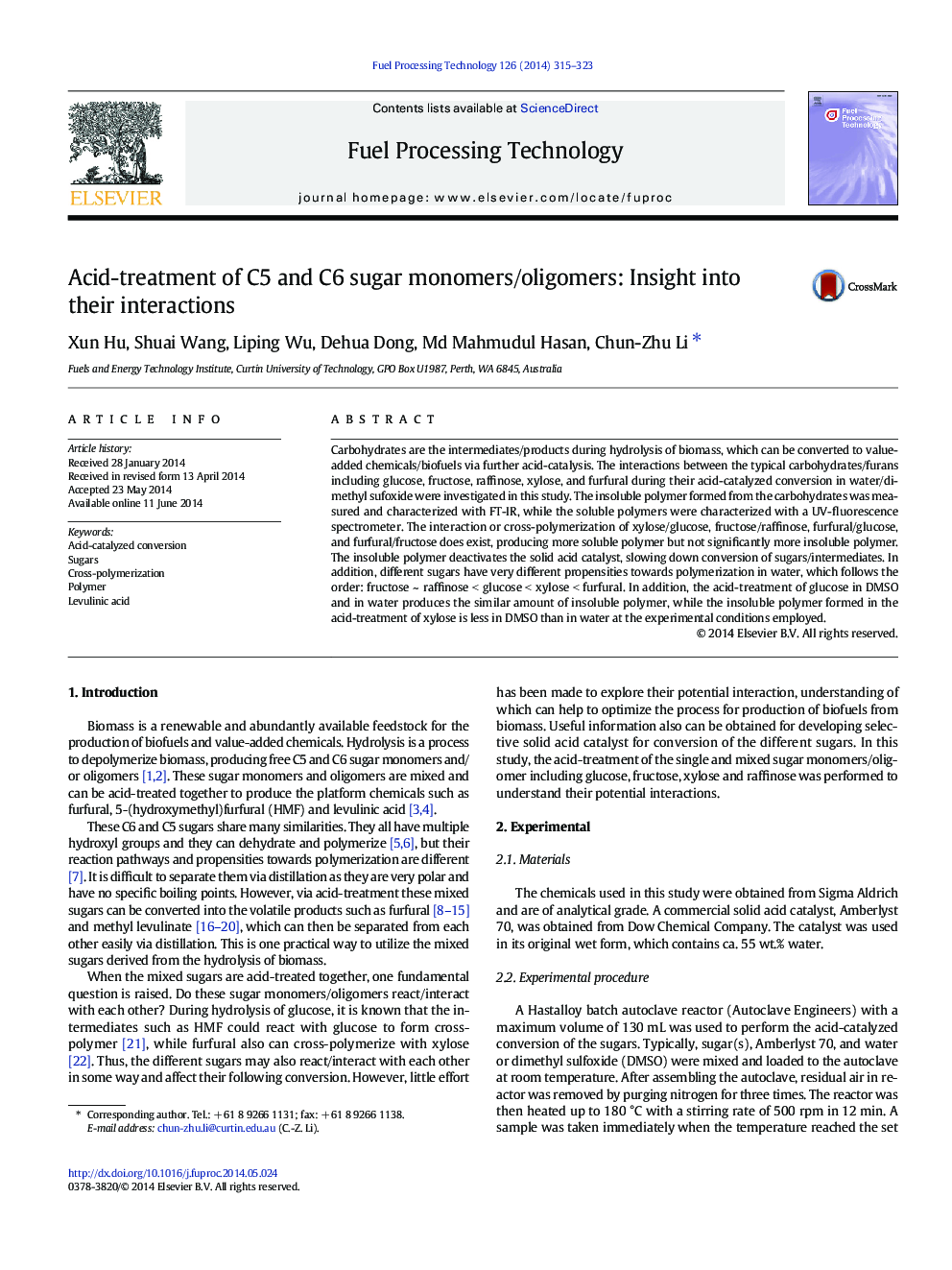| Article ID | Journal | Published Year | Pages | File Type |
|---|---|---|---|---|
| 209730 | Fuel Processing Technology | 2014 | 9 Pages |
•Interaction between xylose, glucose, fructose, raffinose and furfural was studied.•Cross-polymerization between different sugars exists, producing more soluble polymer.•Cross-polymerization does not produce significantly more insoluble polymer.•Insoluble polymer formed: fructose ~ raffinose < glucose < xylose < furfural.•The insoluble polymer formed deactivates the solid acidic resin catalyst.
Carbohydrates are the intermediates/products during hydrolysis of biomass, which can be converted to value-added chemicals/biofuels via further acid-catalysis. The interactions between the typical carbohydrates/furans including glucose, fructose, raffinose, xylose, and furfural during their acid-catalyzed conversion in water/dimethyl sufoxide were investigated in this study. The insoluble polymer formed from the carbohydrates was measured and characterized with FT-IR, while the soluble polymers were characterized with a UV-fluorescence spectrometer. The interaction or cross-polymerization of xylose/glucose, fructose/raffinose, furfural/glucose, and furfural/fructose does exist, producing more soluble polymer but not significantly more insoluble polymer. The insoluble polymer deactivates the solid acid catalyst, slowing down conversion of sugars/intermediates. In addition, different sugars have very different propensities towards polymerization in water, which follows the order: fructose ~ raffinose < glucose < xylose < furfural. In addition, the acid-treatment of glucose in DMSO and in water produces the similar amount of insoluble polymer, while the insoluble polymer formed in the acid-treatment of xylose is less in DMSO than in water at the experimental conditions employed.
Graphical abstractFigure optionsDownload full-size imageDownload as PowerPoint slide
